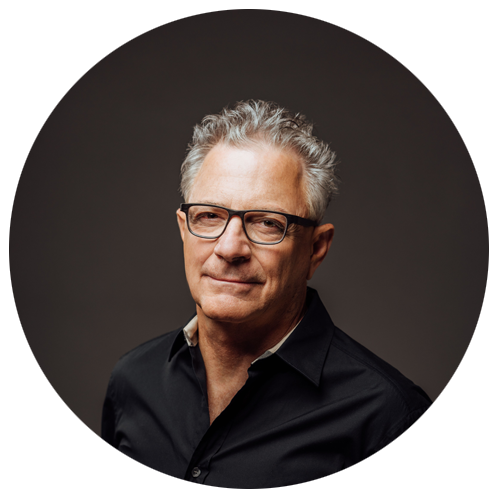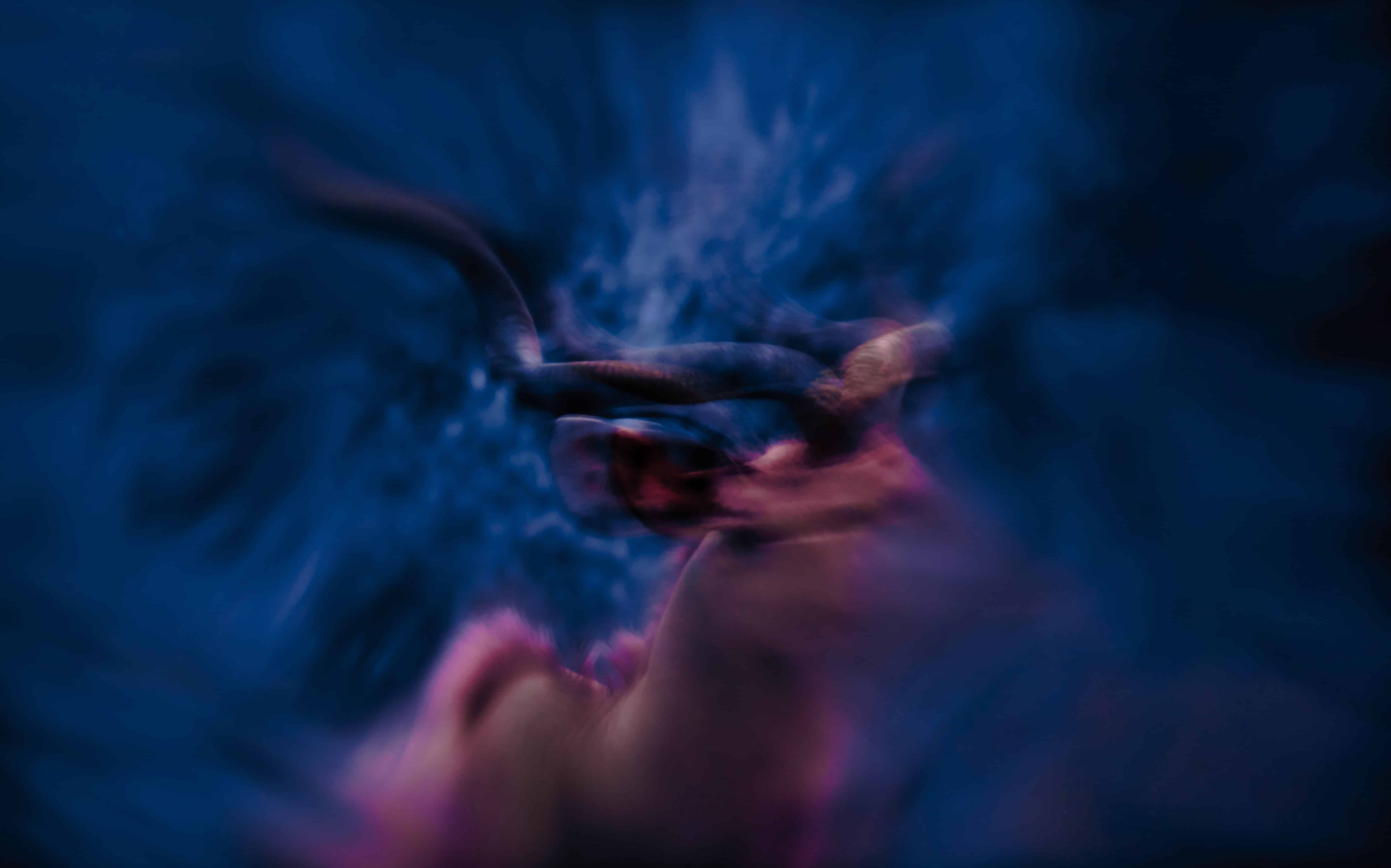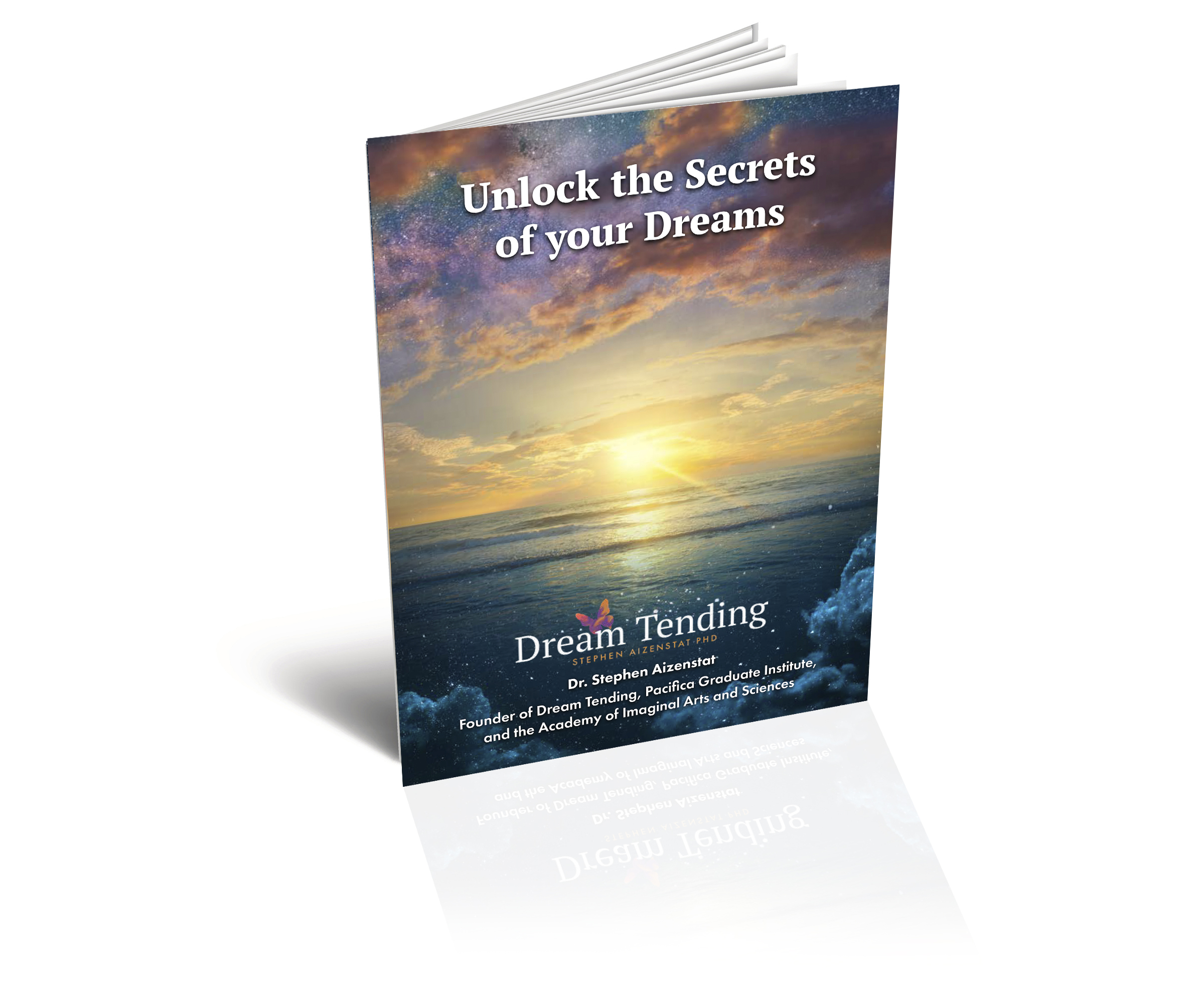Lucid dreaming—there’s an allure and mystery about the phrase that makes it seem otherworldly and arcane, a specialized talent or ability that only a few people possess. Earlier research into lucid dreaming has suggested incredible possibilities. In the 1970s and 1980s, dream researchers experimented with sending messages to others during lucid dreams or meeting them on the dream plane. The idea that two people sleeping in separate rooms could send dreams to each other was fascinating and hinted strongly that there is far more to dreams than our brains simply replaying events from our memories—that there may be another realm where our unconscious minds can travel, explore and exchange messages with others. While that possibility certainly exists, the reality of lucid dreaming is actually much simpler and within the reach of nearly anyone. Dr. Stephen Aizenstat, Ph.D., who has been studying dreams through the lens of depth psychology for several decades, posits a form of lucid dreaming in his Dream Tending methodology that anyone can practice.
A Lucid Dreaming Definition
At its most basic, the conventional definition of lucid dreaming is simply being aware that you are dreaming while you are in the dream. Collins English Dictionary defines lucid dreaming this way:
a dream in which the dreamer is aware that he or she is dreaming and can sometimes influence the course of the dream
That’s it. If you’ve ever been dreaming and found yourself thinking — in the dream — that this must be a dream, you’ve had a lucid dream. You’re not alone in that, either. A 2013 survey found that nearly 80 percent of the nearly 3,500 people questioned remember having at least one lucid dream in their lives, while 44 percent said they recall more than 10 incidents in which they knew they were dreaming while they were in the dream, and about 5 percent report that they have lucid dreams nearly every night.
Only about 25 percent, however, reported that they were able to control or influence their dreams. The study’s authors cited a number of other interesting facts. The incidence of lucid dreaming, for example, varies widely in different countries and cultures, and is far more prevalent in cultures that practice some sort of meditation or mindfulness.
Lucid Dreaming: Traditional Perspective
Why is lucid dreaming important? For many people, the most important aspect of lucid dreaming is the ability to control what happens in the dream. It’s been touted as a method for dealing with recurrent nightmares. If you cultivate the awareness of the dream, this theory goes, you can change its outcome by taking control of the dream. You can turn and face the monster chasing you, for example, and turn it into a kitten. If you’re falling, you can take control and fly instead, or manufacture a soft landing. Others see lucid dreaming as a way to experience things that are impossible for you in real life—flying, for example, or eating fire or visiting the sun.
What Is Lucid Dreaming in Dream Tending?
The idea of using lucid dreams to control your dreams relies on the belief that we construct the dream landscape, and everything within it is a puppet or a prop from the start. In Dream Tending, we recognize that dreams are alive, that our dream images, whether they be creatures, inanimate objects or the dream landscape itself, have their own consciousness, and that we can interact with them when we meet them where they are and as they are.
As you practice Dream Tending, you may find yourself dreaming lucidly more often. One thing the research does show is that people who keep a dream journal or otherwise attempt to remember their dreams are more likely to recognize when they are dreaming. When that happens, instead of dismissing what is happening in the dream as “just a dream,” or trying to control the dream as the “awake ego” might do through rational determination, a person can appreciate the lucidity as increased awareness. This allows them to bring a “witnessing presence” into the dream-scape, take “field notes,” bring an increased actuality of the dream back into the awake experience.
How Lucid Dreaming Can Help You Heal
When you are in a dream, you have access to awareness, knowledge and connections that your conscious mind cannot access. In a lucid dream, you can bring increased awareness to explore the landscape and interact with the living images you meet there. Being aware of your dreams can help you return repeatedly to the images that have messages for you, getting to know them and learning what they need from you. The exploration, observation and interaction with your dreams can help you build your self-confidence, find your life purpose, improve your relationships and even, in some cases, find the keys to heal emotional and physical illnesses.
Lucid dreaming can bring a whole new dimension to your dreamwork, allowing you to explore and witness the dream landscape more freely, while respecting the world and creatures of the dreamtime with a deeper appreciation and awareness of their true nature.
Written by Deb Powers
Deb Powers is a freelance writer who has studied and written extensively about archetypal images, dreams and metaphysical subjects. Her self-published tarot deck focuses on using tarot images and concepts for self-empowerment, problem-solving and personal growth.
References:
-
- Dream Tending: Awakening to the Healing Power of Dreams by Stephen Aizenstat
- https://www.collinsdictionary.com/us/dictionary/english/lucid-dream
- https://www.medicalnewstoday.com/articles/323077.php
- https://www.ncbi.nlm.nih.gov/pubmed/30089135
- https://www.everydayhealth.com/drugs/galantamine
- https://www.ncbi.nlm.nih.gov/pubmed/28915465
- https://www.psychologytoday.com/us/blog/dream-catcher/201405/the-promise-and-perils-lucid-dreams
- https://www.researchgate.net/publication/319855294_Reality_testing_and_the_mnemonic_induction_of_lucid_dreams_Findings_from_the_national_Australian_lucid_dream_induction_study

Stephen Aizenstat
Stephen Aizenstat, Ph.D., is the founder of Dream Tending, Pacifica Graduate Institute, and the Academy of Imaginal Arts and Sciences. He is a world-renowned professor of depth psychology, an imagination specialist, and an innovator. He has served as an organizational consultant to major companies and institutions, and as a depth psychological content advisor to Hollywood film makers. He has lectured extensively in the U.S., Asia, and Europe. He is affiliated with the Earth Charter International project through the United Nations, where he has spoken. Professor Aizenstat is the Chancellor Emeritus and Founding President of Pacifica Graduate Institute. He has collaborated with many notable masters in the field including Joseph Campbell, James Hillman, Marion Woodman, and Robert Johnson.
Unleash your creativity and innate genius
Learn the Power, Purpose and Intelligence of Dreams
Improve the quality of your relationships, discover your authentic life purpose and improve your emotional and physical health with the Dream Tending Academy.
Free e-book download
For over 40 years, I have devoted my life to understanding the profound wisdom and healing power that exists within each of us. I am excited to share my latest e-book that showcases how to tap into your dream state through the powerful applications of creativity and innovation. By following my groundbreaking methods and techniques, you will discover how to unlock your creative potential, increase your emotional and intellectual bandwidth, and realize your personal and professional goals. Download my e-book and unlock the secrets of your dreams and deep imagination!








